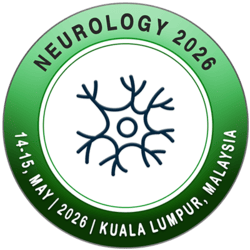Track: Addiction and Adult Psychology

Session Overview:
This session will delve into the intricate relationship between addiction and adult psychology, examining how psychological factors such as stress, trauma, and personality disorders contribute to the development and persistence of addictive behaviors in adults. We will present the latest research, including advancements in understanding the neurobiological and cognitive mechanisms behind addiction. Participants will gain insights into contemporary treatment approaches, such as personalized therapy, integrated care models, and emerging pharmacological options. The session will also address the impact of co-occurring mental health disorders on addiction and highlight new strategies for integrated treatment. Through interactive discussions, real-life case studies, and collaborative problem-solving, attendees will explore innovative solutions and gain practical knowledge to enhance their clinical practice. This comprehensive exploration aims to bridge the gap between theory and practice, providing participants with actionable insights into managing addiction within the broader context of adult mental health.
Recent Developments:
Recent advancements in addiction research have significantly enhanced our understanding of the condition. Studies have uncovered how neurotransmitter imbalances and brain structure changes contribute to addiction, with neuroplasticity research offering new pathways for recovery. Advanced imaging techniques like functional MRI (fMRI) and PET scans provide precise insights into brain activity and help track treatment progress. Personalized medicine innovations now allow for tailored treatment plans that integrate genetic, psychological, and environmental factors, with pharmacogenomics optimizing medication choices. Integrated care models combine addiction treatment with mental health services, improving outcomes and reducing relapse rates. The rise of digital therapeutics and telehealth platforms provides accessible remote counseling and behavioral therapies. Looking ahead, AI and machine learning are being developed to predict relapse risk and customize interventions, while gene-editing technologies like CRISPR offer potential for addressing genetic predispositions to addiction. Biofeedback and neurofeedback advancements promise new self-management options. Notable cases highlight successful integrated treatments, and research into virtual reality (VR) shows promise in enhancing cognitive-behavioral therapy. These developments reflect a growing understanding and offer innovative treatment approaches for addiction.
Sub-Tracks:
Neurobiological Mechanisms of Addiction
Examines the brain's reward system and neurotransmitter imbalances driving addictive behaviors.
Cognitive-Behavioral Models
Focuses on how cognitive distortions and maladaptive behaviors contribute to addiction and effective therapeutic strategies.
Impact of Co-occurring Mental Health Disorders
Explores the interplay between addiction and disorders such as depression and anxiety, emphasizing integrated treatment approaches.
Personalized Medicine in Addiction Treatment
Investigates the role of genetic, psychological, and environmental factors in tailoring addiction treatments.
Advanced Imaging Techniques
Utilizes fMRI and PET scans to track brain activity and identify biomarkers associated with addiction.
Digital Therapeutics and Telehealth
Highlights the use of apps and online platforms for remote addiction counseling and behavioral therapy.
AI and Machine Learning in Addiction Management
Discusses how AI algorithms can predict relapse risk and customize treatment strategies in real-time.
Gene Editing Technologies
Examines the potential of CRISPR and other technologies in addressing genetic predispositions to addiction.
Biofeedback and Neurofeedback
Explores advancements in monitoring and self-regulating brain activity to manage addictive behaviors.
Virtual Reality for Addiction Treatment
Investigates how VR simulations can enhance cognitive-behavioral therapy by providing controlled, immersive environments for coping practice.
Scientific Highlights
- Neurology
- Neuro Anatomy
- Mental Health and Psychiatry
- Geriatric Neurological Disorders
- Neuromuscular Diseases
- Brain Tumor and Neuro-oncology
- Cerebrovascular and Critical Care Neurology
- Clinical Neurophysiology
- Central Nervous System
- Neuro-Ophthalmology
- Pediatric Neurology
- Neuroimaging and Brain Mapping
- Neurogenetics and Neurodegenerative Disease
- Behavioral and Cognitive Neuroscience
- Neurochemistry and Neuropharmacology
- Spinal Neurosurgery and Neural Transplantation
- Neuro Robotics and Neuro Modulators
- Addiction and Adult Psychology
- Brain Stimulation and Computational Neuroscience
- Neural Control of Micturition
- Parkinson's Disease


